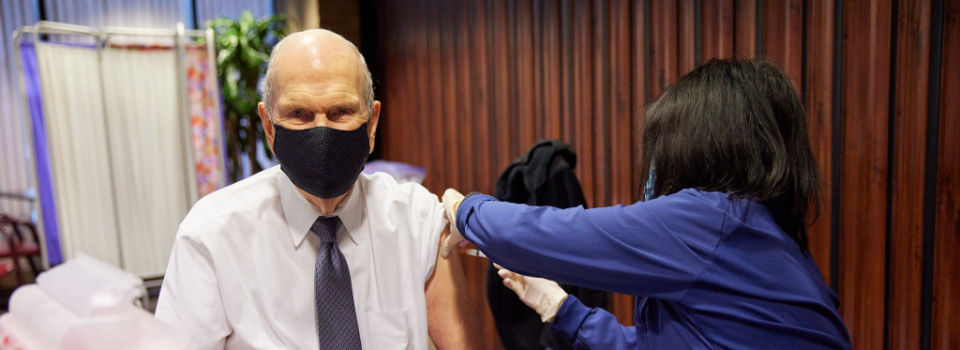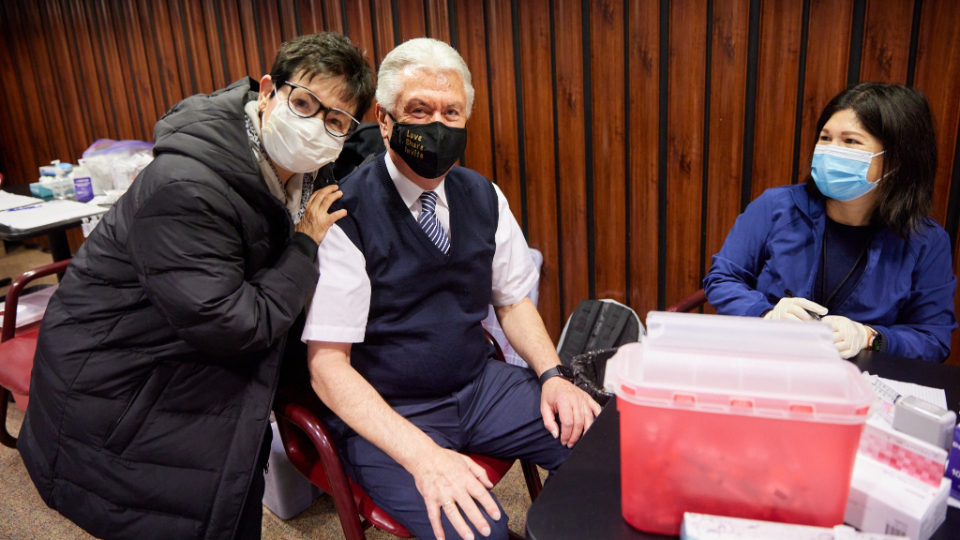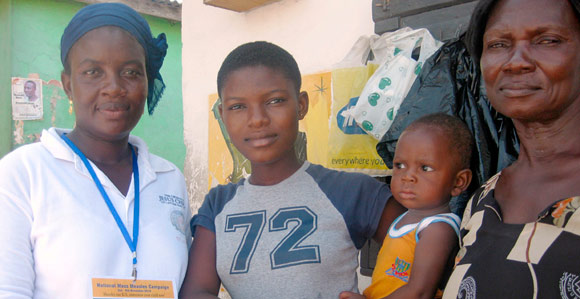
The Church of Jesus Christ has recognized the importance of vaccinations and immunization for decades. “We urge members of The Church of Jesus Christ of Latter-day Saints to protect their own children through immunization,” the First Presidency said in 1978.
Since 2002, through its humanitarian organization Latter-day Saint Charities, the Church has helped fund 168 projects in 46 countries to bless some 116,819,870 people. The results include more immunized children and fewer lives lost to measles, rubella, maternal and neonatal tetanus, polio, diarrhea, pneumonia, and yellow fever.
Consistently with these beliefs and actions, and because of their age, Senior Church leaders over 70 now welcome the opportunity to be vaccinated.
Eight senior leaders of The Church of Jesus Christ of Latter-day Saints received the first dose of a COVID-19 vaccine Tuesday morning in Salt Lake City. These leaders qualify for the vaccine in Utah because they are over the age of 70.

Receiving the vaccine were all three members of the First Presidency and five members of the Quorum of the Twelve Apostles and most of their spouses: President Russell M. Nelson and his wife, Wendy; President Dallin H. Oaks and his wife, Kristen; President Henry B. Eyring; President M. Russell Ballard; Elder Jeffrey R. Holland and his wife, Patricia; Elder Dieter F. Uchtdorf and his wife, Harriet; Elder Quentin L. Cook and his wife, Mary; and Elder D. Todd Christofferson and his wife, Kathy.
As appropriate opportunities become available, the Church urges its members, employees and missionaries to be good global citizens and help quell the pandemic by safeguarding themselves and others through immunization.
(For more details, read this article on Church Newsroom)
In 2012 Church Made Immunizations an Official Initiative

In May of 2012 the Humanitarian Services Division of The Church of Jesus Christ of Latter-day Saints announced that immunizations would join the ranks of the other major humanitarian initiatives—clean water, emergency response, food production, neonatal resuscitation training, vision care, and wheelchairs.
This change meant more emphasis on and more funding for the initiative.
Although Church leaders recognized the importance of immunizations more than 40 years ago (read a 1978 First Presidency letter, “Immunize Children, Leaders Urge”), only in the last two decades has immunization been a focus of the Church’s Welfare Department.
Today health organizations with which the Church has partnered in the past are recognizing the unique ability the Church has to mobilize vast groups of volunteers in countries around the world. These volunteers help further the fight against disease and increase the long-term effects, eventually allowing countries to sustain their own immunization efforts.
